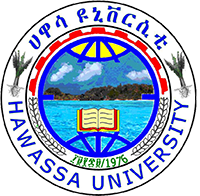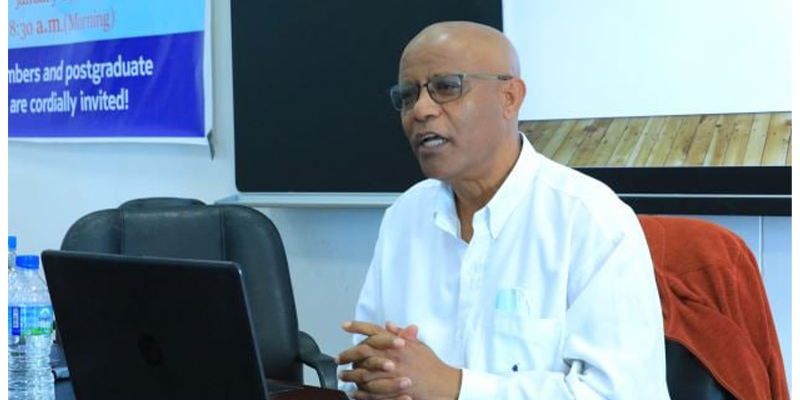College of Social Sciences and Humanities Hosts Public Lecture on “Language Issues in Multilingual Africa”.
A veteran professor from Addis Ababa University, Prof. Zelealem Leyew, gives public lecture to staff and postgraduate students of the College of Social Sciences and Humanities of Hawassa University entitled, “Little Attention to Important Matters: Language Issues in Multilingual Africa”.
Dean of the College, Dr. Zeleke Arficho opened the session stating that the culture of organizing public lectures by such high-profile professors is quite beneficial to enhance academic dialogue and research culture on critical and timely issues like multilingualism. He underscored that the college, and university community at large, need to give due attention to such presentations so that they share deep knowledge from the rich experiences and expertise of the guest professors.
In his elaborate lecture, Prof. Zelealem outlined the sociolinguistic profile of African languages underscoring that “language issues in Africa are practically equivalent to land, racial, housing, clean water, health and good governance issues since language is the essence of humanity”. He also spoke on the persistent role of the colonial legacy in the study and policy-making processes. Hence, he said most of the African languages are endangered though the statistics says the continent shares one-third of the 6000 world languages. He also mentioned the fact that the year 2006 was declared as "The Year of African Languages" by the African Union where most of the official languages in Africa are actually ex-colonial languages.
In addition, Prof. Zelealem language issues in Africa are entangled with ethnic and political interests and the continent is deeply divided on ex-colonial linguistic lines. Such factors have left the question of which language/s to choose as linguafranca, official language or national language/s where multiple indigenous languages are also competing amongst themselves, especially in Ethiopia. He mentioned a case in point remarking that the “three Guinea nations” in Africa are divided among French, Portuguese and Spanish colonial masters: Guinea Conakry (French), Guinea Bissau (Portuguese), Equatorial Guinea (Spanish), which shows the arbitrary and inconsiderate demarcation of national boundaries in Africa by the European colonizers.
Concerning the Ethiopian case with multilingualism, he stated that “Multilingualism is misunderstood and under-studied being considered a curse, not a blessing”. Multiple languages and two scripts are competing in the Ethiopian linguistic scenario, but all it takes is involving only relevant stakeholders in dealing with the problems and get at a consensus. However, eradication of language diversity and marginalization of minor languages are equally dangerous. He raised the question why it is a problem in Africa and Ethiopia when there are other highly multilingual, developed and peaceful countries in Europe and Asia.
As a solution, Prof. Zelealem pointed out that “Nation building is challenged by ethnic and linguistic diversity not intrinsically but because they are distorted by people with different interests attached to them”. Therefore, understanding the hierarchy of languages, involvement of experts in decision-making, systematic study, designing sound language policy, depoliticizing ethnicity, and respect for human rights would seriously help in alleviating those challenges.












